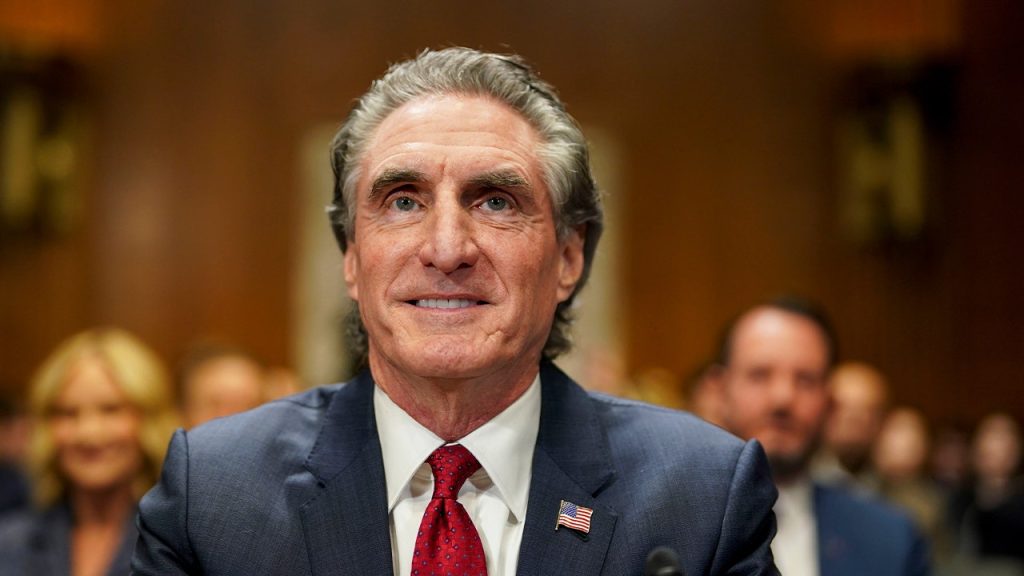The Trump administration has embarked on a concerted effort to dismantle Biden-era environmental policies, prioritizing energy sector deregulation and the expansion of fossil fuel production. This initiative, spearheaded by newly appointed Interior Secretary Doug Burgum, aims to reverse what the administration views as “coercive” climate policies and impediments to energy development. Burgum’s initial actions signal a stark departure from the previous administration’s focus on green energy and climate change mitigation, setting the stage for a potential four-year battle over environmental policy. The administration’s stated goal is to unlock America’s energy potential and stimulate economic growth, while critics express concerns about the potential environmental consequences of these policy shifts.
Burgum’s first week in office saw a flurry of orders designed to reshape the Department of the Interior’s (DOI) agenda. Key among these are directives to identify and eliminate “harmful” climate policies, lift bans on oil and gas leases, particularly in the Outer Continental Shelf and the Arctic National Wildlife Refuge, and scrutinize the allocation of funds from the Inflation Reduction Act (IRA), specifically targeting green energy projects. This multi-pronged approach demonstrates the administration’s commitment to prioritizing fossil fuel development and rolling back environmental regulations. The declared National Energy Emergency serves as the justification for expediting infrastructure and environmental projects related to energy production.
The administration’s deregulatory agenda extends beyond specific environmental policies. Burgum has mandated a 10-to-1 ratio for new regulations, meaning that for every new regulation implemented, ten existing ones must be eliminated. This aggressive approach aims to streamline regulations and reduce perceived burdens on businesses, particularly in the energy sector. Coupled with the review of agency actions that “potentially burden” domestic energy development, this strategy signals a significant shift towards deregulation and a potential weakening of environmental safeguards.
The rescission of the Biden administration’s order halting oil and gas leasing in the Arctic National Wildlife Refuge is a particularly contentious move. This pristine area, long a focus of conservation efforts, is now open for potential oil and gas exploration, reflecting the administration’s prioritization of energy production over environmental protection. This decision highlights the stark contrast between the two administrations’ approaches to resource management and conservation. The Trump administration views these areas as untapped resources crucial for energy independence and economic growth, while environmental groups emphasize the ecological importance of these areas and the potential risks associated with resource extraction.
The Trump administration’s actions have predictably drawn criticism from environmental groups. They accuse the administration of prioritizing industry interests over environmental protection and public health, arguing that the rollback of environmental regulations will exacerbate climate change and jeopardize fragile ecosystems. Organizations like Earthjustice have voiced their opposition to Burgum’s nomination and the administration’s broader environmental agenda, highlighting concerns about the impact of increased fossil fuel extraction on public lands and waters. The legal battles that ensued during the previous Trump administration are likely to be reignited, as environmental groups mobilize to challenge these policy changes in court.
The stage is set for a protracted conflict over environmental policy in the United States. The Trump administration’s aggressive pursuit of deregulation and fossil fuel expansion stands in stark opposition to the previous administration’s focus on green energy and climate action. This clash of ideologies will likely play out in regulatory battles, legal challenges, and public discourse, with significant implications for the future of environmental protection and energy policy in the country. The impact of these policy changes on climate change, biodiversity, and public health remains to be seen, but the direction of the current administration signals a shift away from environmental concerns and towards a focus on energy dominance and economic growth.

